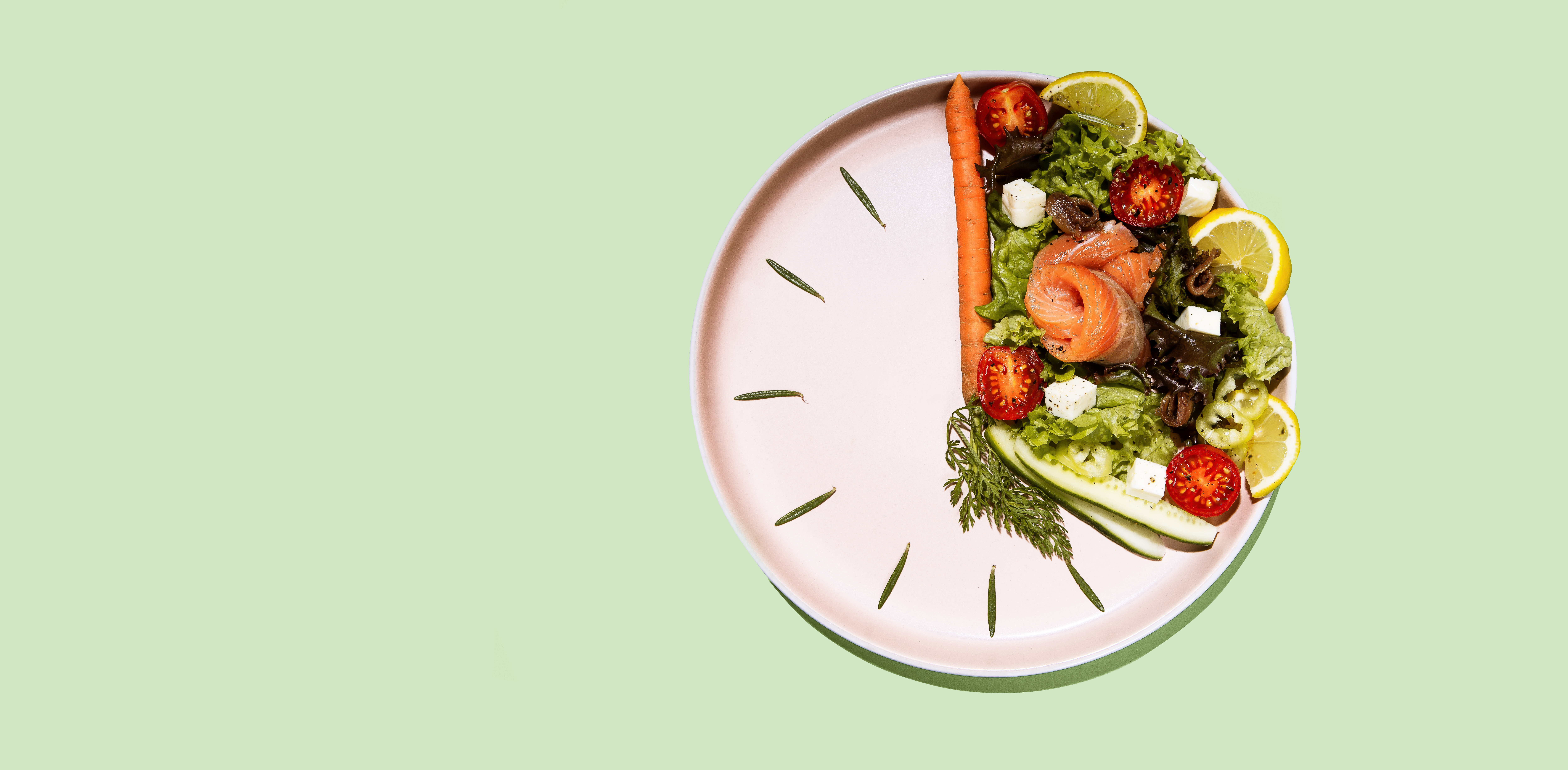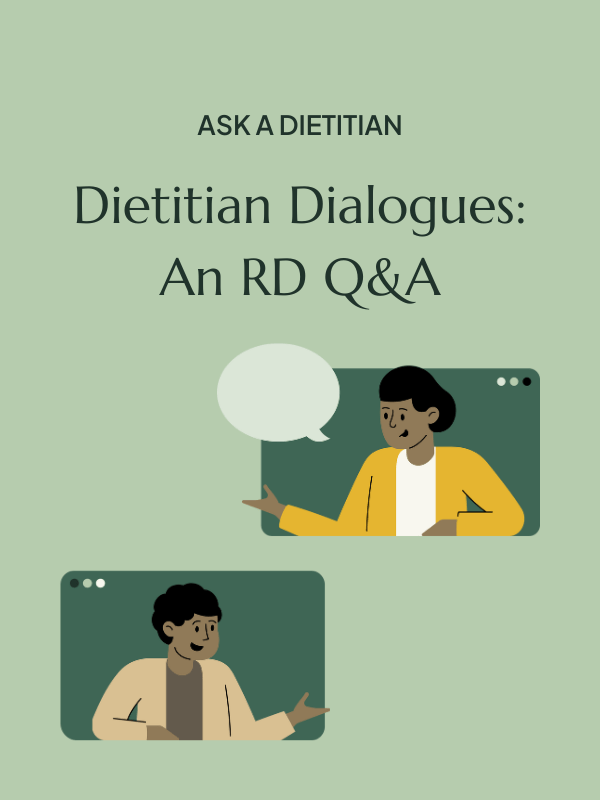What you put into your body before, during and after a workout can significantly impact your performance, recovery, and overall fitness goals. Your nutritional needs around a workout will depend on several factors including the type, duration and intensity of your workout, as well as your overall fitness and health goals.
Listening to your body is also key, as some people respond differently to certain types of foods as well as meal and snack timing around a workout.
In this article, our registered dietitian nutritionists provide you with some general guidelines and tips to maximize your workouts by fueling appropriately, and supporting post-workout recovery.
What to Eat Before a Workout
The first thing to consider is the timing of your meal or snack before your workout. In general, you want to eat a complete meal 3-4 hours before a workout, including lean protein, healthy fats, non-starchy vegetables and high fiber carbohydrates. The combination of these at meal time will release sustained energy throughout the course of the day, providing you with adequate fuel.
High-fiber carbohydrates, including whole grains, beans, fruit and starchy vegetables, will provide slow releasing glucose for energy. Fats provide another source of fuel, while protein helps to support muscle repair and synthesis, and antioxidants from fruits and vegetables can help with workout recovery.
The amount of calories and the macronutrient ratios at meal time is highly individualized, depending on several factors including height, weight, age, body composition, type of exercise and training, and overall goals. For example, if your focus is strength training and building muscle, you will have increased protein needs, and if you are training for a long-endurance event like a marathon, higher carbohydrate intakes are needed.
Once you are within a 2-hour window of your workout, you want to choose a snack that primarily consists of carbohydrates. Carbohydrates are the body’s preferred source of energy, so making sure you are supplying it with an adequate amount will help you maintain enough fuel to get through your workout, preventing early muscle fatigue and low blood sugar.
Fats and fiber take longer to digest, and can therefore cause gastrointestinal discomfort if consumed too close to your workout (think gas, bloating and a rumbling stomach). It can also leave you feeling more sluggish, since energy is being spent digesting. Small amounts may be tolerated outside the 1-hour pre-workout window, depending on the individual.
Some studies show that low to moderate amounts of protein with carbohydrates before a workout can help improve muscle repair and synthesis. However, meeting your overall protein needs over the course of the day, and getting adequate protein intake in the post-workout recovery period is most important.
The amount of carbohydrates to include in your pre-workout snack depends on the intensity and duration of your workout. Typically speaking, low-intensity workouts that are under an hour do not necessarily require an additional snack for fuel, unless you haven’t eaten a meal in the 3-4 hour window pre-workout and are hungry. For moderate to intense workouts around an hour, usually 15-30 grams of carbs in the 2-hour pre-workout window is adequate.
If you are eating 2 hours before your workout, you can choose a snack with some fiber and/or protein. For example, plain low-fat yogurt with berries, plain cereal with low-fat milk (or milk alternative), oatmeal made with low-fat milk, or an apple with string cheese.
If you are within 1 hour of your workout, stick to a low-fiber, low-fat, low-protein snack consisting primarily of easy-to-digest, quick-releasing carbohydrates. Examples include a banana, granola, or granola bar (low-fat, low-fiber), dried fruit (try a couple of dates or a small handful of raisins), apple sauce, or some plain crackers. 100% fruit juice diluted in water is also a good option.
What to Eat During a Workout
Fueling during a workout is typically only needed for endurance and high intensity workouts over an hour. For endurance exercise between 1-2.5 hours, you may need between 30-60 grams of quick-releasing (low fiber) carbohydrates per hour, and ultra-endurance exercise more than 3 hours may require up to 90 grams per hour.
The preferred source of carbohydrates during workouts is typically in the form of sports drinks, powders, or energy chews. These options usually contain carbohydrates as sugar, for quick releasing fuel that is typically well tolerated without gastrointestinal side effects.
What to Eat After a Workout
Whether your workout is focused on cardiovascular endurance, or anabolic training such as weightlifting, or a combination like HIIT workouts, adequate post-workout fuel is important for recovery and optimizing your workout results.
The two key components of a good post-workout snack are carbohydrates and protein, which should be consumed in the 2-hour recovery window after exercise. Alternatively, you could eat a meal incorporating proteins, carbohydrates and fats, depending on the time of day and your meal schedule.
For example, if you workout first thing in the morning, have a small snack before consisting of easy-to-digest carbohydrates (try a banana), and then have a balanced breakfast after your workout.
Exercise depletes the body’s energy stores (which is stored glucose, called glycogen), so you want to make sure to replenish your energy reserves by consuming carbohydrates after a workout. The amount of carbohydrates needed depends on the duration of your workout and the energy spent. Similar to the pre-workout snack, for the average person working out for about an hour, 15-30 grams of carbohydrates is usually enough for a post-workout snack.
Protein helps to support muscle repairing and rebuilding. Consuming an adequate amount of protein in the 2-hour recovery period is particularly important for athletes and those engaging in performance training looking to optimize muscle protein synthesis (MPS). The recommended amount of protein intake is dependent on several factors, including body weight.
It is important to note that protein intakes above 40 grams in a meal or snack post-workout does not appear to have added benefits (with the exception of some extreme cases).
Examples of good post-workout snacks include:
- Overnight oats with Greek yogurt or protein powder, topped with fruit (option to add nuts)
- Greek yogurt and fruit (option to add nuts)
- Protein shake/smoothie
- Protein bar (Make sure it includes carbs, as many are marketed as low-carb. If it is a low-carb protein bar, pair with a piece of fruit)
- Eggs and toast
- Sandwich on whole wheat bread with sliced turkey
If you are not looking for muscle gains, you can choose a snack with carbohydrates and a more moderate amount of protein. Examples include: Apple or banana with nut butter (ie. peanut butter or almond butter), plain yogurt and fruit, whole wheat toast or English muffin with nut butter and sliced banana, oatmeal with nuts and fruit, or a peanut butter and jelly sandwich.
If you are opting for a post-workout meal, we recommend following the plate method concept, adjusting to your individual needs.
Staying Hydrated
Hydrating before, during and after your workout is essential. First, you want to make sure that you are meeting your baseline hydration needs over the course of the day. While hydration needs are individualized depending on several factors, the general guidelines as outlined by the Academy of Nutrition and Dietetics, are about 11.5 cups (or 2.7 L) of water per day for women, while men require about 15.5 (or 3.7 L) cups, from both food and beverages.
Your hydration needs during your workout depend on how long you are working out and your sweat output. Try sipping on water throughout your workout and avoid chugging, which can cause discomfort while working out. Those that are engaging in high intensity or long duration workouts, or in high heat or elevation, may require additional fluid intake as well as electrolyte replacement to help rehydrate faster and replenish losses through sweat. In these cases, adding an electrolyte supplement, particularly one with sodium, may be beneficial.
Final Thoughts on Food As Fuel
Remember, it’s not just what you put into your body right before or right after a workout, but your overall diet that will have the most impact on your physical activity performance and overall health and fitness goals.
The key points regarding fueling around a workout are time your meals/snacks appropriately, focus on carbohydrates pre-workout, and a combination of protein and carbohydrates post-workout and hydrate throughout. If you are a competitive athlete, never try anything new on event day! Everyone responds to foods and meal timing differently, so make sure to try out different foods and eating schedules to figure out what works best for you.
We recommend working with one of our registered dietitian nutritionists for a highly individualized and collaborative approach to building a personalized nutrition plan to support your health and fitness goals.
Have more questions about fueling before and after your workout? Work with a Culina Health registered dietitian nutritionist to get personalized virtual nutrition care that is covered by insurance.






